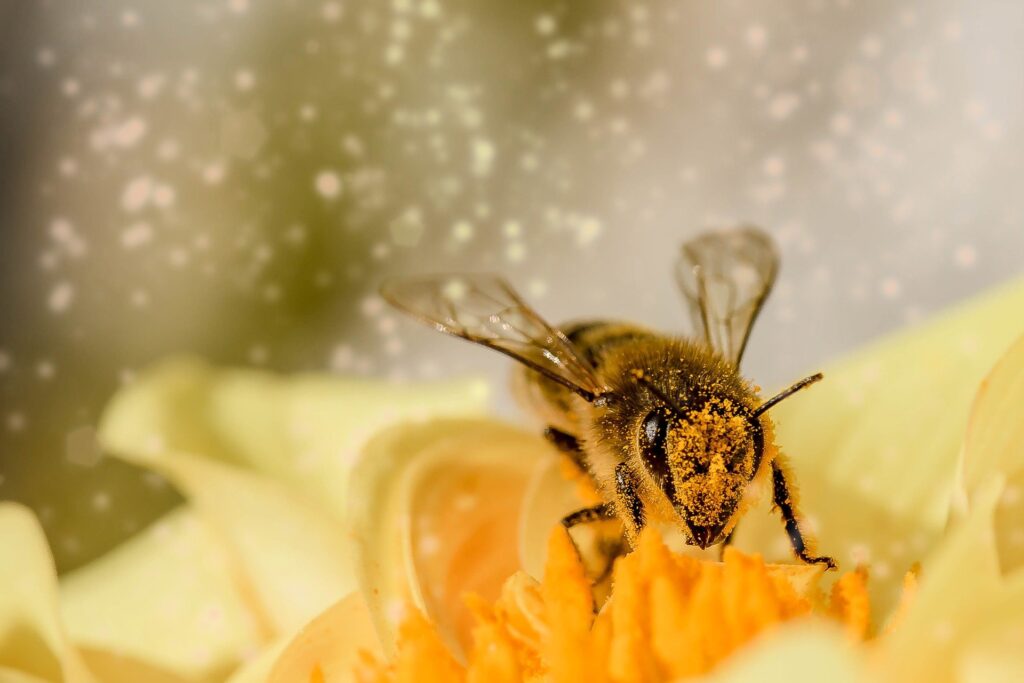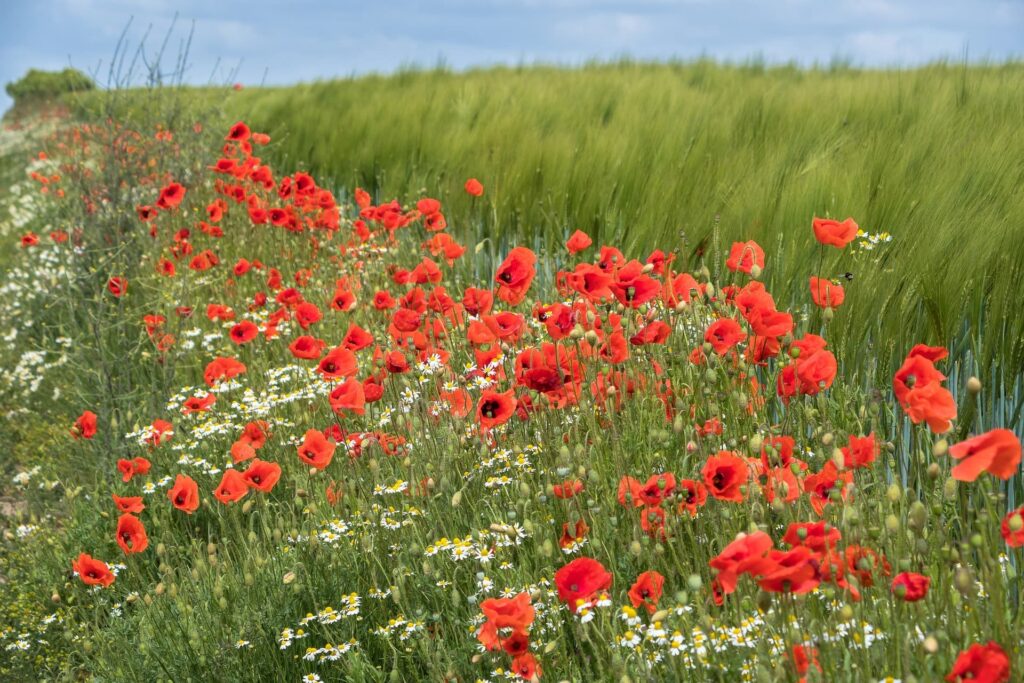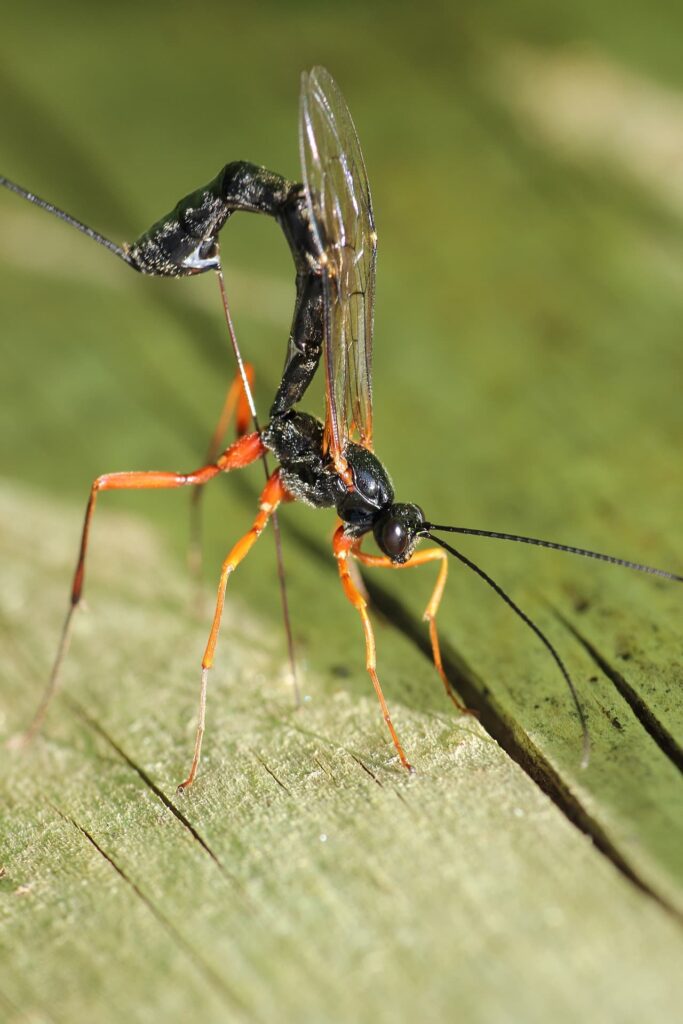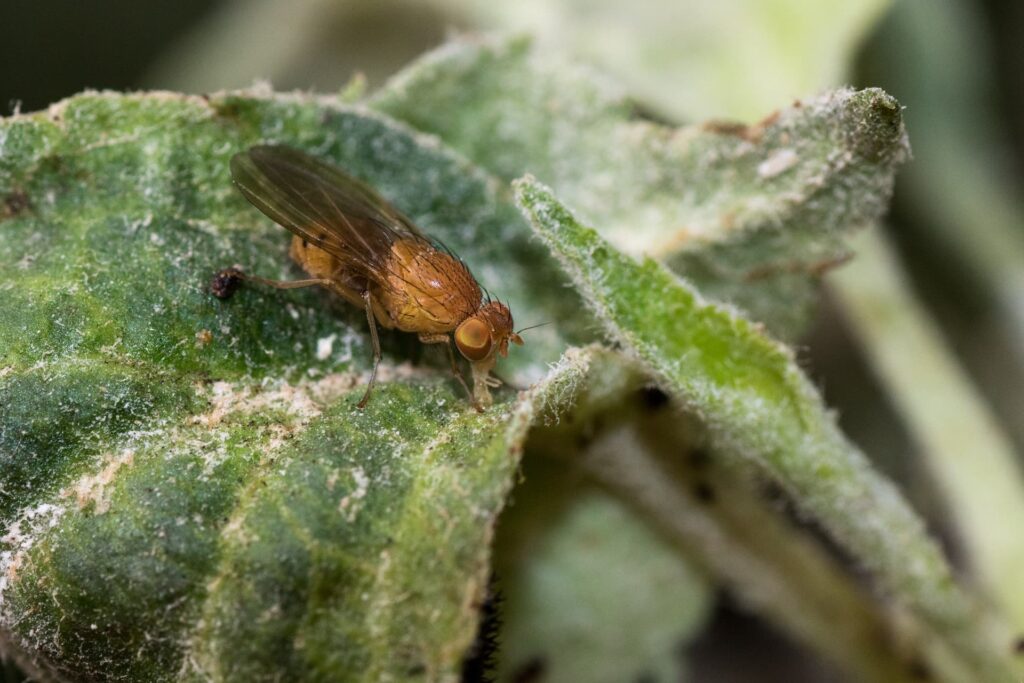Insects
Insects fulfil an indispensable function for agriculture with their pollination work. Their countless species include numerous beneficial insects which protect crops against pests. Insects thus take on a role in natural crop protection.
The pollination work of insects
In their search for food, insects fly to flowers to gather pollen and nectar. As they crawl around a flower, pollen sticks to them. In their continuing search for food, they then transport this pollen to the next flower and pollinate it. Most plants in the world couldn’t exist without this type of pollination. And insects are by far the biggest contributors. While bees are the best-known pollinators, a range of fly and mosquito species, and also butterflies and beetles, assist plants with their pollination. In Switzerland, the pollination work performed by insects is valued at up to half a billion francs each year.


Bees
Honeybees live in large colonies, while wild bees are solitary creatures. What both have in common is their importance for agriculture.
Flowering strips – agriculture promotes insects
Swiss farming families are fully aware of the value of insects. This is why they make sure to offer them habitats. One way they do this is by sowing flowering strips or strips for beneficial insects. When the fruit trees and rapeseed blossom in the spring, a lavish spread awaits the insects. Once blossoming is over, however, the supply of pollen and nectar drops significantly. The insects can then find food on the flowering strips in the fields. The beneficial insect strips are designed even more specifically for beneficial insects – in some cases even offering them a habitat in winter too.




